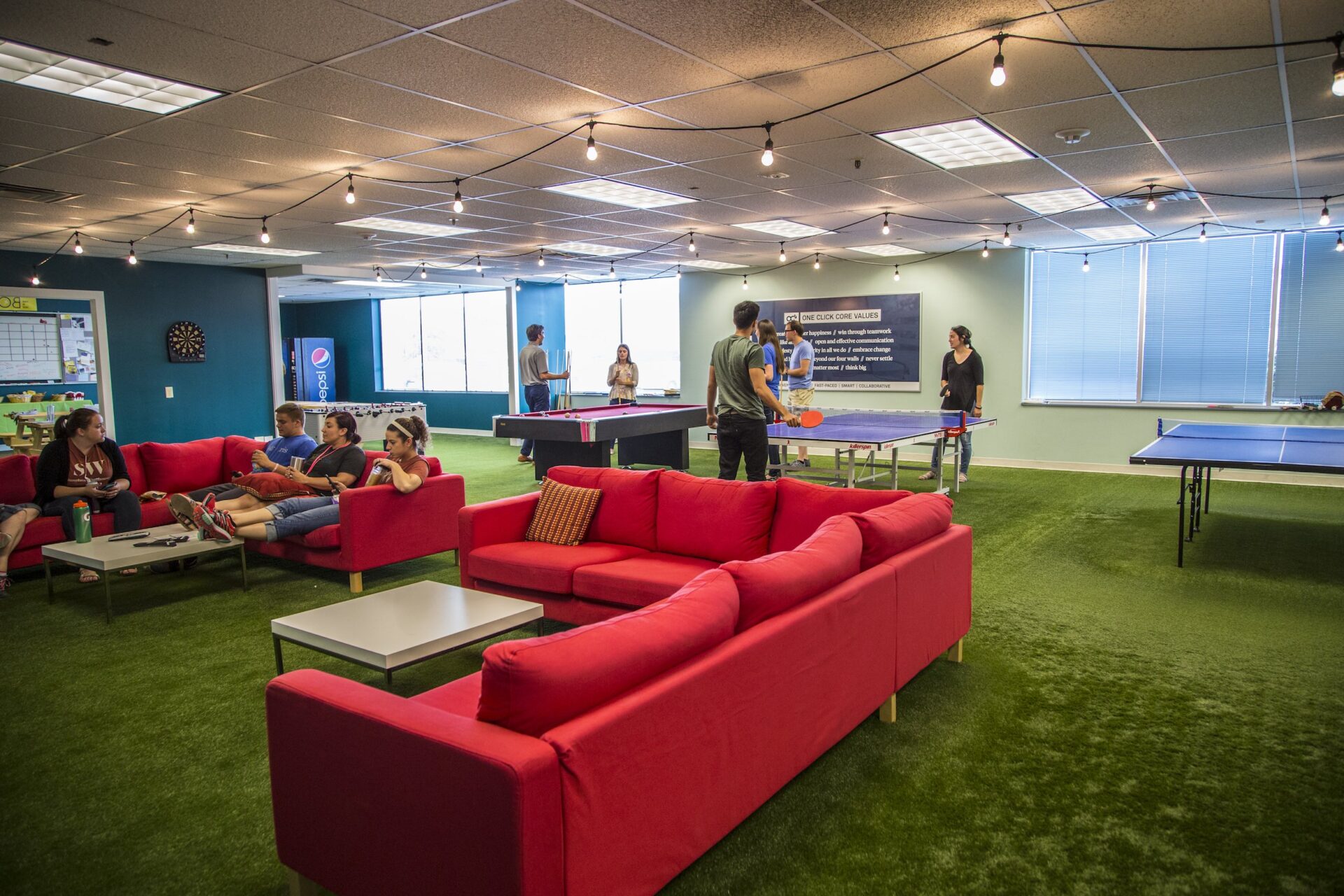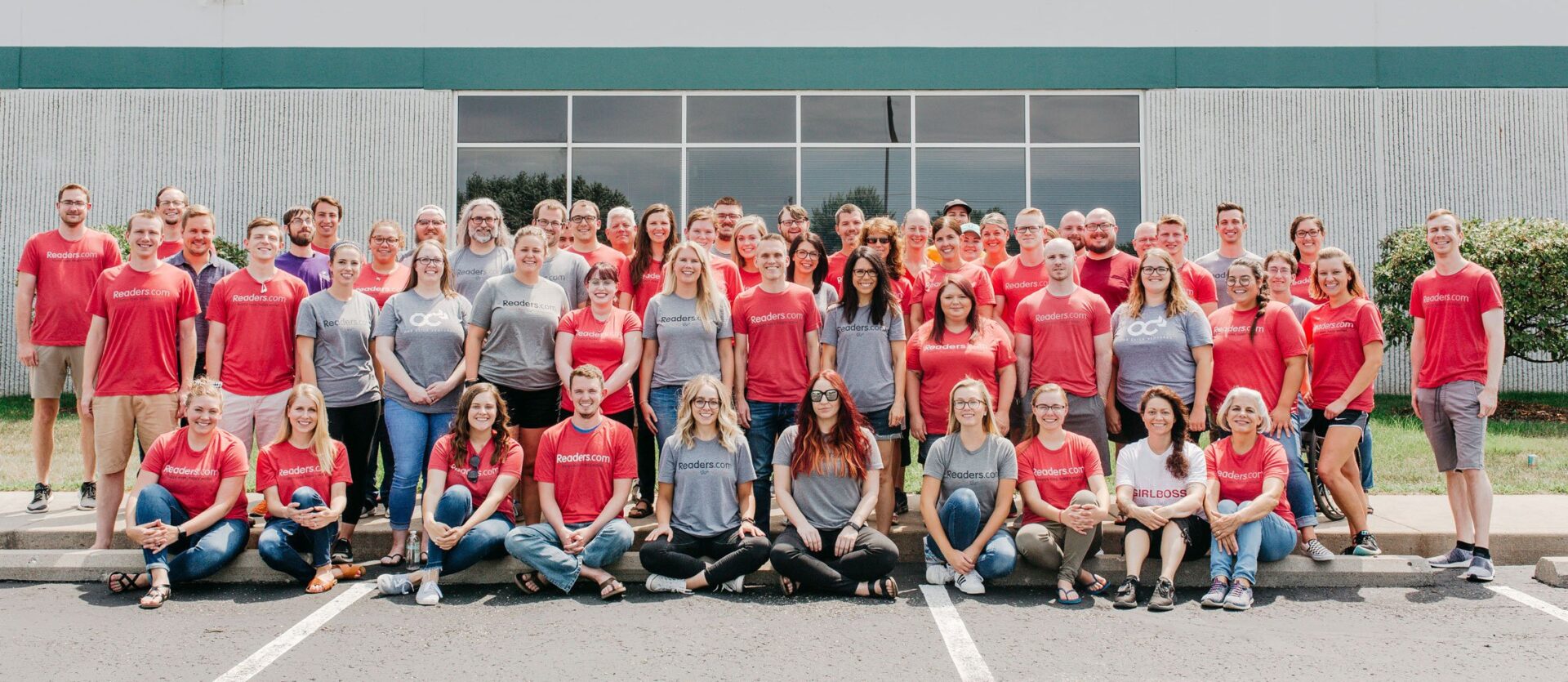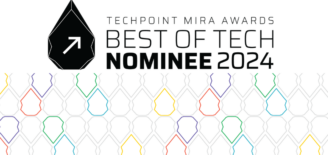A bold pivot helped One Click start a whole new growth trajectory
It was easy to find One Click’s headquarters in Greenwood, Ind., a short drive south of Indianapolis. As I pulled up to the sprawling one-story building, what looked like most of the company’s 90 employees were gathered in the front parking lot enjoying ice cream from a food truck that had been arranged for the afternoon.
The Company Culture of the Year award-winning eyewear retailer actually emphasizes its vision, mission and values over its workplace perks, but they know how to “bring the fun” all the same. Inc. and Entrepreneur magazines have both recognized One Click for its outstanding culture and the company has won consecutive awards from Best Places to Work in Indiana and Indiana Companies to Watch.
Quite frankly, it’s the business success of One Click that caught my attention when founders Angie and Randy Stocklin agreed to sit down with me for an interview recently. Without ever taking outside investment (short of a $1 million tax incentive deal with the state when they bought their building), One Click has doubled in size and grown revenue by 30-40 percent per year nearly every year since 2012.

Things could have turned out very differently for One Click if it hadn’t been for a few bold and risky decisions first prompted by the tectonic shifts in search engine optimization (SEO) that spelled disaster for many dot com retailers five to six years ago.
“In the early days of e-commerce, brand building wasn’t a top priority for many companies. Brands seemed more focused on acquiring market share through paid and organic search,” Randy Stocklin, CEO and Co-Founder, said. “But the last seven to eight years have been vastly different. The companies that are winning in the direct-to-consumer space, by and large they’re building differentiated brands that connect with consumers on an emotional level as opposed to just winning in search. We recognized the shift that was taking place, took a step back and decided that in order to achieve our long-term goals we needed to build a better customer experience around our eyewear brands.”
At the time, One Click owned nine different brands — handbags, neck ties, socks, scarves, hats and, of course, eyewear — with plans to expand to 25 or 30 brands, mostly through acquisition. Once Google announced the change to its algorithm (2012) and shifts in search and PPC became clear, realistically building 25-30 separate brands didn’t seem like a scalable business model for One Click anymore, despite being very happy with the company’s growth and profitability.

The next move, perhaps the boldest thing they’d ever done, was to sell off all of their brands except for the fastest growing, highest margin brands — eyewear, specifically the Readers.com and Sunglass Warehouse brands — which also happened to be the brands that the founders and many employees happened to have the most conviction around. It didn’t hurt that eyewear was also the least costly in terms of storage and logistics. Remarkably, One Click continued to grow through the divestment and the following year as they rolled out the new eyewear strategy.
Shortly thereafter, One Click developed and launched its own prescription glasses brand called felix + iris, which delivers a completely personalized online shopping experience.
When the company had nine brands to support across a broad range of fashion wearables, it was difficult to make organic and logical connections to industries and philanthropies that the founders and employees cared about, according to Angie Stocklin, COO. After divesting seven of the nine brands and narrowing the One Click mission to “building the world’s most people-focused eyewear company,” everything started to come naturally. Today, One Click is a member of the Vision Council and they have a close partnership with Indianapolis-based Timmy Global Health, as well as strong eyewear industry relationships.
“We’re here for a higher purpose than just selling eyewear. It’s about much more than that,” Angie said. “It’s about our customers, our community and each other. I mean, anyone could start selling sunglasses out of their home like we did. It doesn’t take much sophistication to do that. However, building a lasting company that has a meaningful impact on customers, community and team members … that’s a higher purpose and it’s a lot more difficult and a lot more rewarding, too.”




